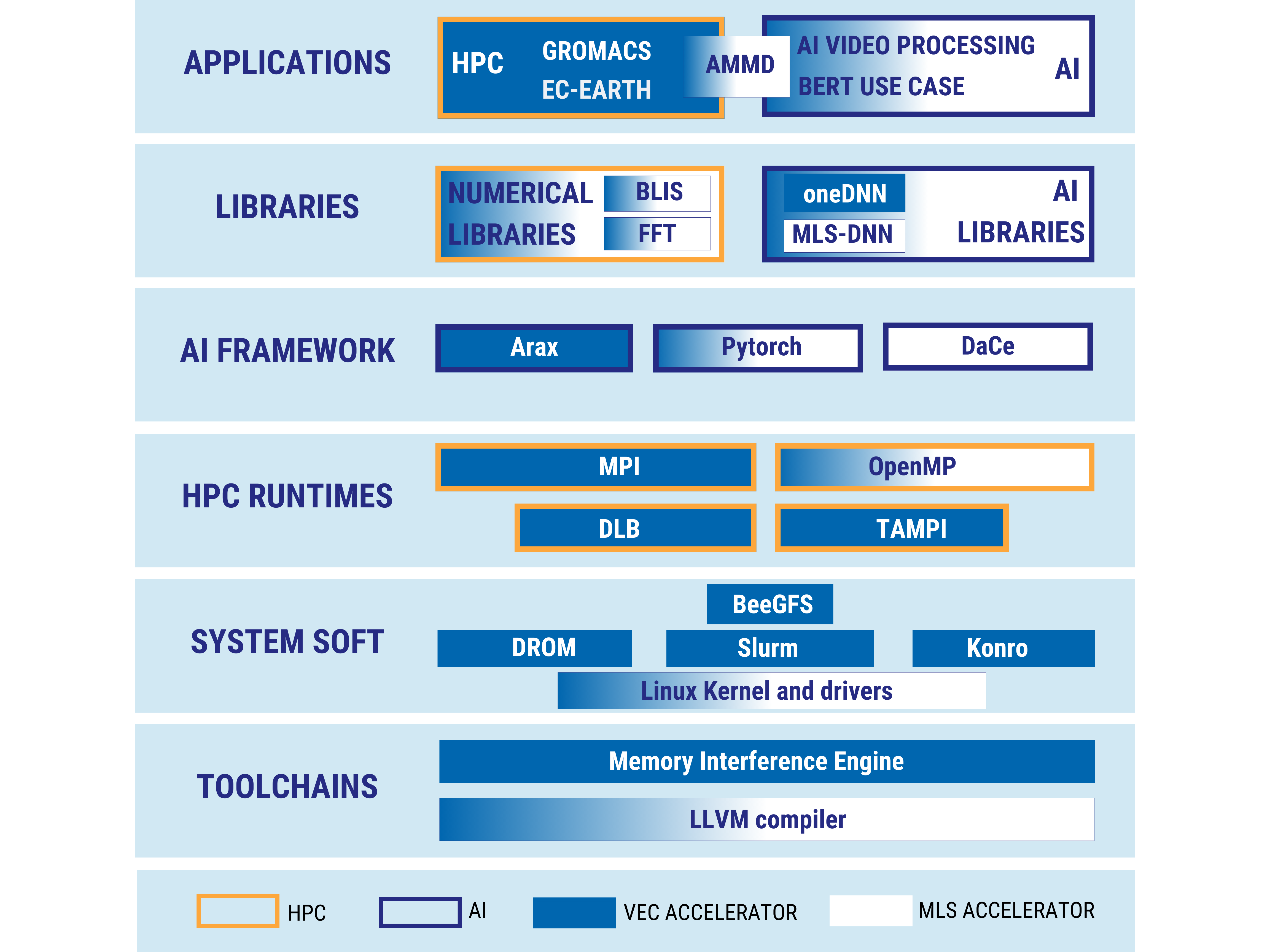Home /
Software
Open-source software technologies as well as others developed in Europe are key to EUPILOT’s success, contributing to demonstrate the capabilities of Europe to achieve technological independence. A layered software stack – that includes from applications to operating systems, and also libraries, runtime systems, resource managers, compilers and toolchains – will demonstrate the functionalities featured in the two different accelerators (vector and machine learning, and stencil).
The EUPILOT stack will support traditional HPC applications, AI workloads as well as novel HPC/AI applications. The integration between the European IP accelerators and the customized software stack will pave the way to future Exascale levels of performance at an unparalleled scale. Standards (such as OpenMP and MPI targeting HPC), open-software frameworks (such as Arax and oneDNN targeting AI) and European developments (such as DaCe, TAMPI or DLB) will lead to programming productivity and usability. They will also contribute to European leadership in supercomputing technologies, boost industrial competitiveness and get closer cooperation among European stakeholders.

Applications
Two well-known and used HPC applications (GROMACS and EC-EARTH), an AI video processing use case, and an AI-based drug discovery application will be the main drivers to demonstrate the software stack and AI accelerators developed in the project. Porting them to the accelerators may require changes in the code and data structures to benefit from the potential acceleration with VEC and MLS chiplets. Numerical and AI libraries, compiler support for automatic vectorization and optimized HPC and deep learning frameworks will be the key to accelerating the application porting process.
Explore EUPILOT's current initiatives in software development
VEC co-design with GROMACS
Arax-OneDNN integration/offloading
DaCeML
Dynamic Management of Resources Library (DMRlib) enables MPI malleability in HPC clusters